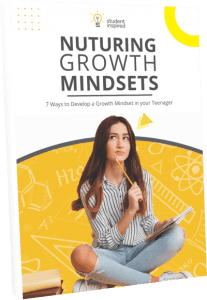Frequently Asked Questions




Academic life coaching is a one-on-one relationship with a caring, supportive professional who works on building the student up into a higher level of functioning. Academic coaching helps students successfully navigate the entire school experience rather than just mastering subject content in one area. Students learn a wide variety of skills that can be applied to every class. These new tools help the student build a powerful toolbox for school success.
Traditional tutoring focuses on helping students master specific class content, such as math or science. Tutoring is about helping students understand a subject so that they can do well in particular classes.
A coach helps students focus on learning the tools they will need to succeed throughout their academic career while promoting balance and structure between the student’s academic and personal lives. The coach does not focus on specific subject content but more on strategies to help students reduce stress and improve their performance in school.
Tutors are skilled in a specific subject matter, and they tend to focus on what a student needs to learn for a class. They use traditional teaching methods to help students work toward an outcome-oriented goal, usually earning a particular letter grade.
Struggles
We begin by conducting an informal assessment to determine the student’s core areas of struggle. We ask questions like: what do they usually have trouble accomplishing? When does this problem typically occur? how does the problem make the student and parents feel and how do they respond to their feelings?. This is when we gather as much information as possible sto aid us with providing support with identifying and articulating possible solutions to ease the stress and burden that the student is experiencing.
Solutions
After we have a complete picture of what is not going well, we move into solution mode. We are aware that as a parent, you are deeply concerned about getting a solution to struggles that your student is experiencing. As a key stakeholder, your ideas and suggestions are needed and welcomed. We will fuse your recommendations with what your student has come up with so that we arrive at an outcome that both you and your student will find beneficial.
Skills
Once we have landed on the solution or solutions of choice, we work with our students to identify the key skills that they need to deploy. Many times, students need support building new skills and strengthening existing skills. Skills are crucial because students use them every day to accomplish learning goals and objectives.
Strategies
Armed with the skills that need to be deployed to overcome an area of struggle, we move right into figuring out strategic actions to activate to help the student attain the beneficial outcomes of their desired solution. The use of strategies allows students to target their actions so that the overcome obstacles more easily.
Structure
When we help students create a good structure that provides adequate scaffolding, we look at time management, organization and accountability. We help students figure out how to manage and direct time appropriately so that they are able to complete tasks before the required deadline. This is where we help students to develop relevant habits that will eventually become automatic which in turn will reduce the stress of performing certain actions. We also work with them to create daily routines that will help them to get assigned work done on time while maintaining a high quality of work. We also work on helping students stay organized. They will learn to keep their documents, backpacks, and dedicated workspace organized so that they are able to easily retrieve the items that they need. This promotes focus and productivity as students know where to find the items that they need thereby reducing the amount of time wasted on searching for items.
Supplies
Finally, we determine if there are any resources or materials or just anything that the student needs in order to aid them in getting the solution they desire. Supplies can range from writing tools to electronic equipment like tablets, computers to software, healthy snacks to eat and water to keep them hydrated as they work. We want to make sure that the student has the tools they require to get their work done.
- Goal Setting
- Developing a clear vision for
- Establishing academic goals
- Creating clearly-defined short and long-term goals
- Motivation & Mindset
- How to get and stay motivated
- Building a resilient growth mindset
- Troubleshooting low motivation when faced with roadblocks and setbacks
- Managing positive and negative emotions about academics
- Habits & Routines
- Developing productive habits to support academic success
- Adjusting to changes in schedule or usual routines
- Creating routines that help
- Time Management
- Figuring out the correct amount of time needed for tasks
- Managing daily homework loads
- Planning and scheduling study time, homework and extracurricular
- Techniques to overcome procrastination and not getting your work done
- Organisation
- Preparing for study and classes
- Tracking assignments from multiple sources
- Systems for organising paper or digital notes
- Setting up an organized study environment to promote productivity
- Homework & Self Study
- Learning practical and helpful study strategies
- Getting unstuck during different phases of assignments
- Structuring study time for maximum effect
- Optimizing study time with retrieval practice
- Exam Revision
- Creating revision plans
- Creating study guides, quizzes and other study tools
- Science-backed revision techniques for different exam types
- Techniques to conquer exam anxiety
- A typical session runs between 45 minutes to an hour. Although every session is shaped by the student’s unique academic workload and goals. A typical work session will include activities like:
- check on-line for assignments
- plan and prioritize workload for the week
- study and prepare for tests, quizzes, and presentations
- monitor long term projects
- edit papers
- Track and assess habits and grades
- communicate with teachers
- review rubrics and class notes
- organize workspace and or backpack
- build skills and develop strategies
- reflect on takeaways and lessons learned
- discuss action items for next session
- troubleshoot challenges & obstacles to success
- Training and coaching on focus areas
Our sessions are held online using the Zoom software, so it is easy for us to accommodate students in different time zones. We provide a link to a private online office so no username log-in is needed by the student. Virtual sessions are often as good as or better than in-person coaching. Through the use of Zoom, Google Docs, screen sharing, and online drawing tools, students stay busy and engaged throughout the session.
The number of sessions depends on the student’s goals and varies from student to student. Some clients only need a booster set of 4-8 sessions centered on a specific goal or focus area. The majority of students, however, have 2 – 3 weekly meetings during the school year to keep them on track.
We work with students from 9th grade through Grad School.
- Complete the coaching intake form.
- Schedule a complimentary 30-minute parent consultation.
- Schedule a complimentary 50-minute student strategy session.
- Decide on the right coaching program for student

